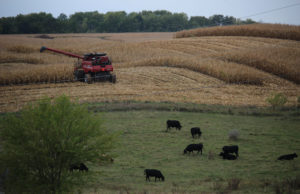Under a tires-up 4-wheeler, in a dry gulley in a pasture surrounded by 8-foot tall corn, a quarter mile from the nearest neighbor and “half-a-mile from nowhere,” lay a 64-year-old Daykin, Nebraska farmer.
David Endorf should have been on the way to the local co-op’s customer appreciation lunch.
Instead, he was pinned, his leg wedged between a log at the bottom of the steep ditch and the ATV’s seat. No one knew where he was.
Through some stroke of luck, he was alive.
Endorf, who farms about 2000 acres in Jefferson and Saline Counties, doesn’t take for granted the factors that played into his accident and his survival.
Fateful distraction
Like many farmers, Endorf works alone. August 20, 2018 was no different.
He’d filled the sprayer tank on the back of his Honda Foreman ES 4×4 that morning, loaded it on the trailer, and headed northeast of Daykin to one of his farms – a vacant farmstead with a lush 70-acre creek pasture – to spray volunteer locust and mulberry trees.
A couple hours later and a quarter mile from the farmstead, he was ready to break for lunch. He’d been working a stretch along the dry creek in a stand of mature oaks.
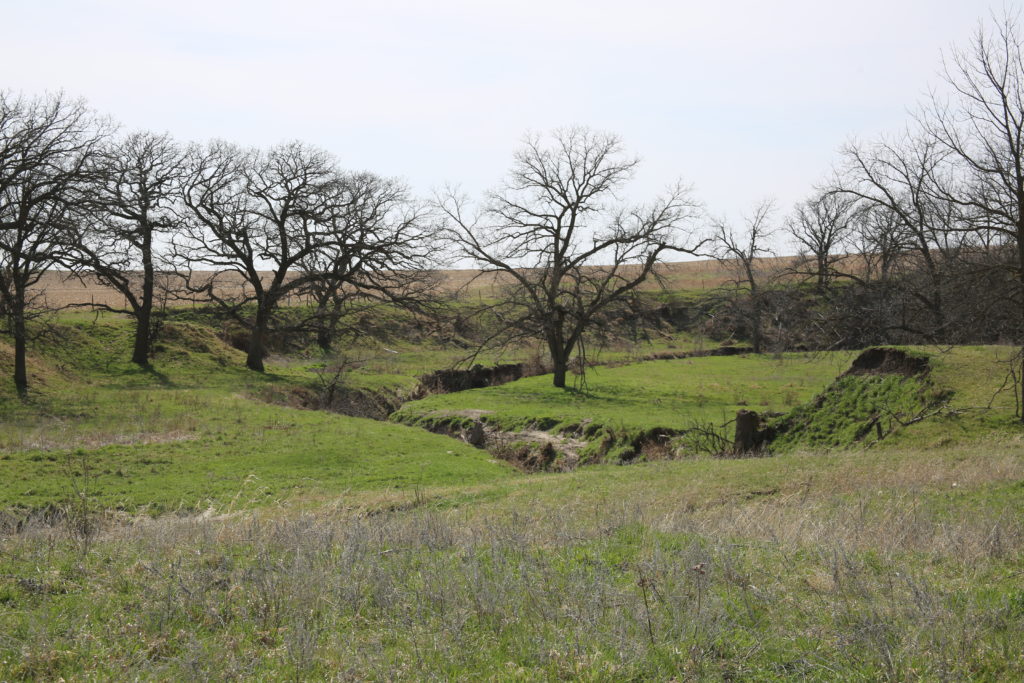
“At about 11:15, I started watching my watch and I started thinking: About how much I could spray. How much I could get done. How much I needed to do yet. How many minutes it’d take me to get to town.
“The key is, I didn’t have my mind on what I was doing.”
Deciding to quit and get out of the brushy area he’d boxed himself into, he explains:
“Without looking, I backed up and dropped the rear wheel off the side, and me and the 4-wheeler and sprayer all rolled down the bank.”
That bank has a 60-degree slope and a seven-foot drop.
The roll threw him partly away from the machine against the bottom of the opposite bank. His left shoulder, hip and head took the brunt of the impact. He doesn’t believe he was knocked out.
Endorf’s response was systematic.
“I took a little inventory: I wasn’t bleeding; I didn’t feel like I had any broken bones; I definitely had a sore shoulder, hip. My side hurt kind of bad, but I was alive.
“I had to find my glasses, and I found my glasses. I had to get my hat on.”
But he was trapped under 600 pounds of equipment and isolated.
“You could shout all you wanted to out here,” he explains, “and nobody would hear you.”
He couldn’t move the ATV. In the V-shaped gulley, there was no room for rocking the machine one way or the other.
Among the many “fortunatelys” Endorf counts, his cellphone, worn at his belt, took a hit too, but somehow remained functional, albeit now with a cracked face and a slight bend.
He thought about calling his wife, “but,” he explains, “what’s she gonna do?
“I thought about dialing 911, but how do you describe where you are to a 911 operator?”
Explaining his location to someone unfamiliar to the local terrain could have been challenging and time consuming.
Then he remembered his neighbors, Bob Endorf and his son Drew (his distant cousins), were going to the same lunch that he was going to. He also knew he needed one or two strong guys who could lift the front of the machine.
“Bob and Drew are on the fire department and ambulance squad, so I figured if I needed some medical assistance by the time they got here, they could help me to a certain extent, at least.”
“I told them what kind of predicament I was in and asked them, ‘do you think the two of you can lift this thing off me?’
They said, ‘Well, we’re sure gonna try!’”
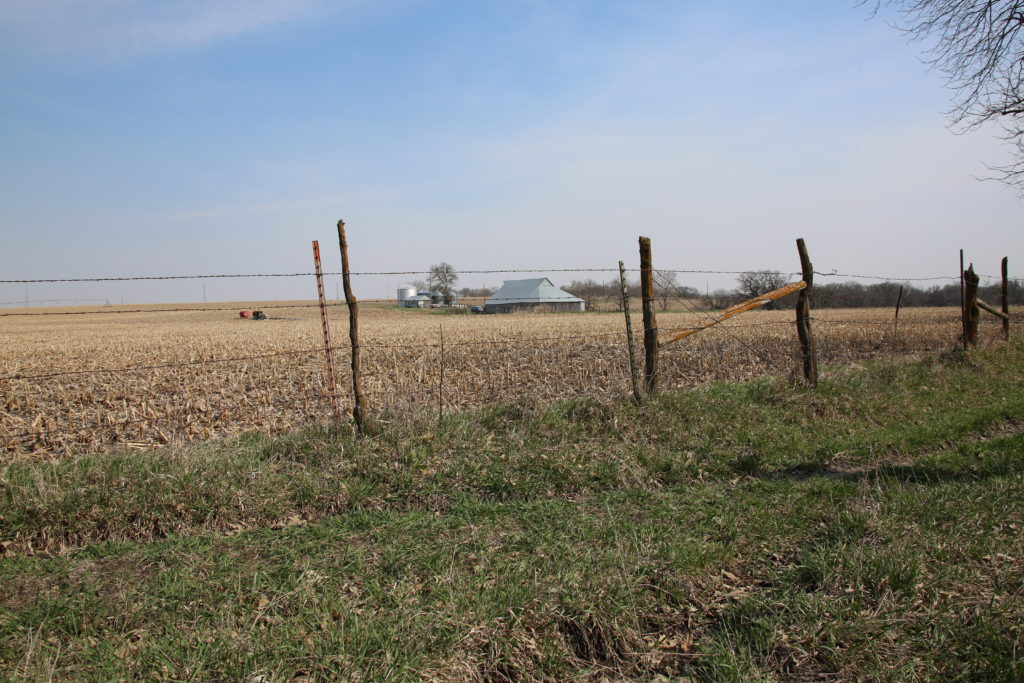
So for 15 to 20 minutes, at least, he estimates, Endorf navigated them by phone to the farm where he was, and, using a fenceline as a landmark, the quarter mile to his location in the pasture beyond the cornfield.
“I was in a very hidden place,” he says. Walking the fenceline, or even a few feet from the vegetation-covered bank, you couldn’t spot him.
Eventually, they could hear each other’s voices in person.
“How did you survive this?”
Bob and Drew lifted the front of the machine so Dave could free himself. They were incredulous he’d survived.
“Their biggest concern,” he says, “was ‘are you hurt, are you hurt?’”
They helped him up the bank and back to their trucks, and in celebration – mission accomplished – the three went to the co-op for that good barbecue lunch.
“What else was there to do?” Endorf’s laugh reveals his obvious gratitude. “We were hungry, we went back up to the dinner!”
(Almost) as planned.
Later, he and his wife Colleen took a skid loader to pull the ATV out.
“When she first saw where that 4-wheeler was, she just burst into tears. She said ‘How’d you ever survive that?’ It was quite emotional for her.”
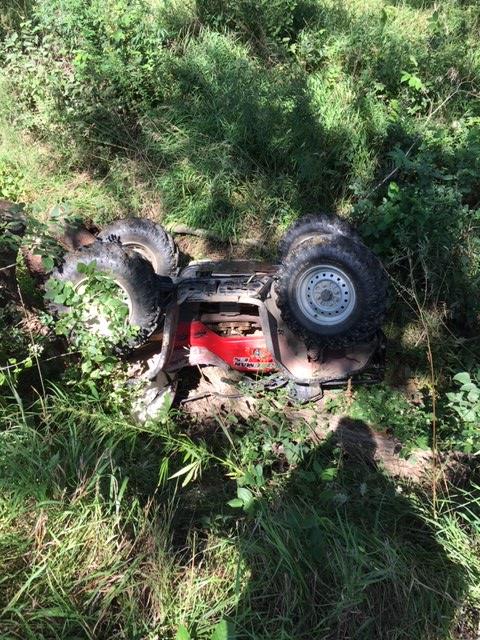
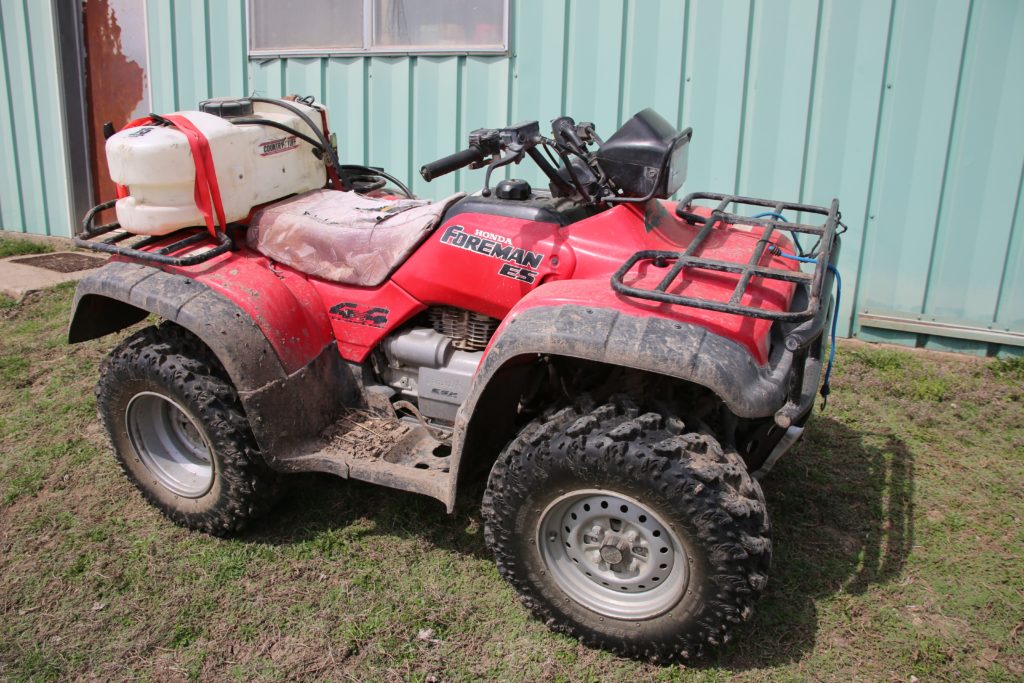
His ATV survived as well, a little worse for the wear, and he uses it daily. The left handlebar got bent, some oil got in the engine cylinder and had to be drained out, but the tank is intact; the tank might have even cushioned the impact a bit, he thinks.
But having a tank full of liquid in it – even 15 gallons – is like putting the weight of a small person on the back of the machine; it affects the center of balance and handling, he notes, making a machine more susceptible to overturning on uneven terrain.
‘Fortunatelys’
Endorf hopes others can learn from what he experienced.
“I didn’t have my mind on what I was doing, that’s the real key,” he stresses.
The factors contributing to his surviving are a litany of good fortune and lessons.
Fortunately, his cellphone survived the impact.
Fortunately, there was service in that location – not the case in all rural areas.
Fortunately, his injuries – severe bruising, a painful shoulder that may have included a cracked collarbone, but no head injury – were no worse. Only the year before, he’d undergone a cardiac procedure that allowed him to discontinue a prescribed blood thinner he had been on for over 10 years.
“I was able to get off Xarelto, which probably saved my life here – because I probably would have had severe internal bleeding.
“Fortunately,” he concludes, “I’m here to tell my story.”
His advice?
“Always keep your cell phone with you. Keep your mind on what you’re doing. If you have a heart problem or a health condition, address it… don’t put it off like I did for 10 years.”
He’s reflective, adding:
“I’ve gotten better since then, letting my wife know where I am, because if I had been unconscious or seriously hurt, or my cellphone did not work, she wouldn’t have come to look for me until it got dark or until suppertime – at least 8 to 9 hours later.
“It would have been a mighty long day out where I was without water, without food. Would I have survived? Who knows, it depends on what my injuries would have been. As it turned out, I was extremely lucky, extremely fortunate.
“I thank the good Lord for that, and so I’ve learned to appreciate life a little bit more, and we go on from there.”
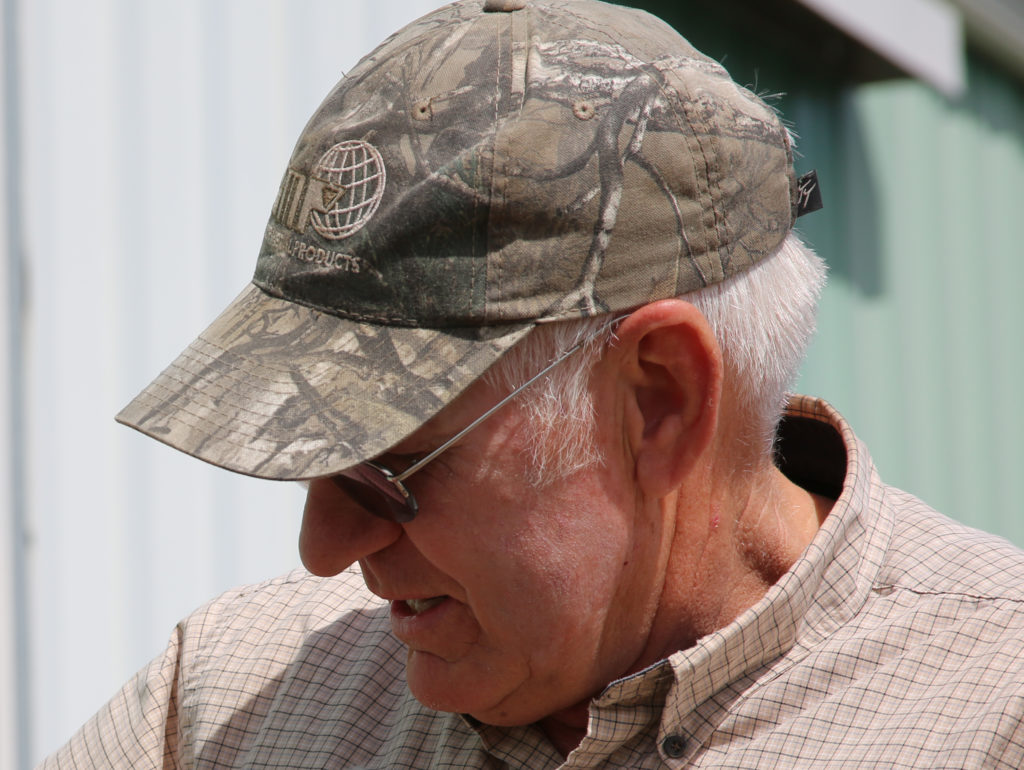
An edited version of David’s story was published in Iowa Farmer Today.
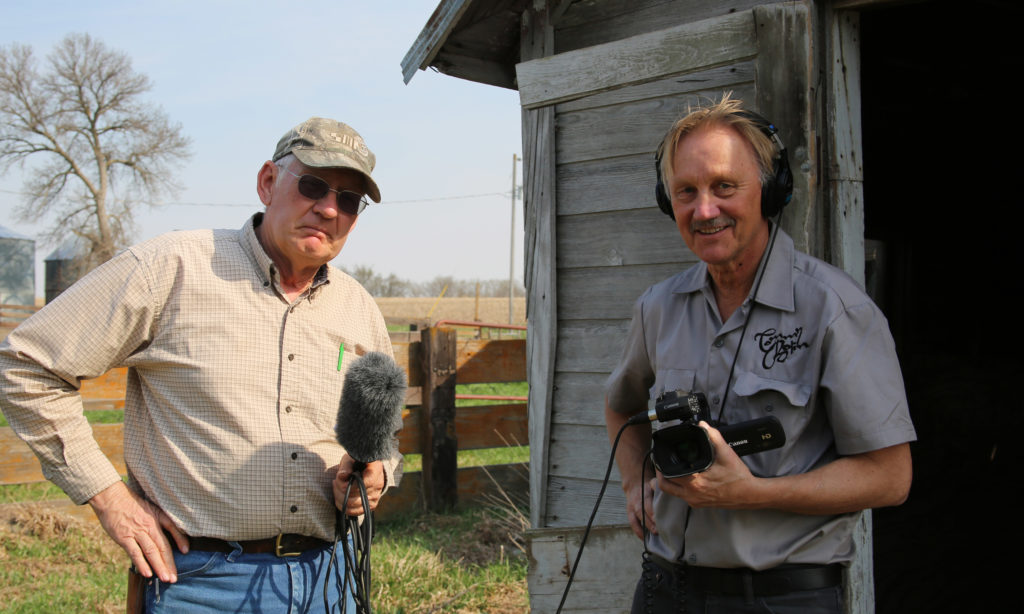
More Information
- Cultivate Safety ATV Resources
- UMASH Farm Safety Check: ATV
- CS-CASH: ATV Safety
- Video: ATV Safety
- Video: Introduction to Safer Riding on ATVs in Agriculture
Story | Stephanie Leonard
Photos | David Endorf, Stephanie Leonard, Risto Rautiainen
Video | Risto Rautiainen
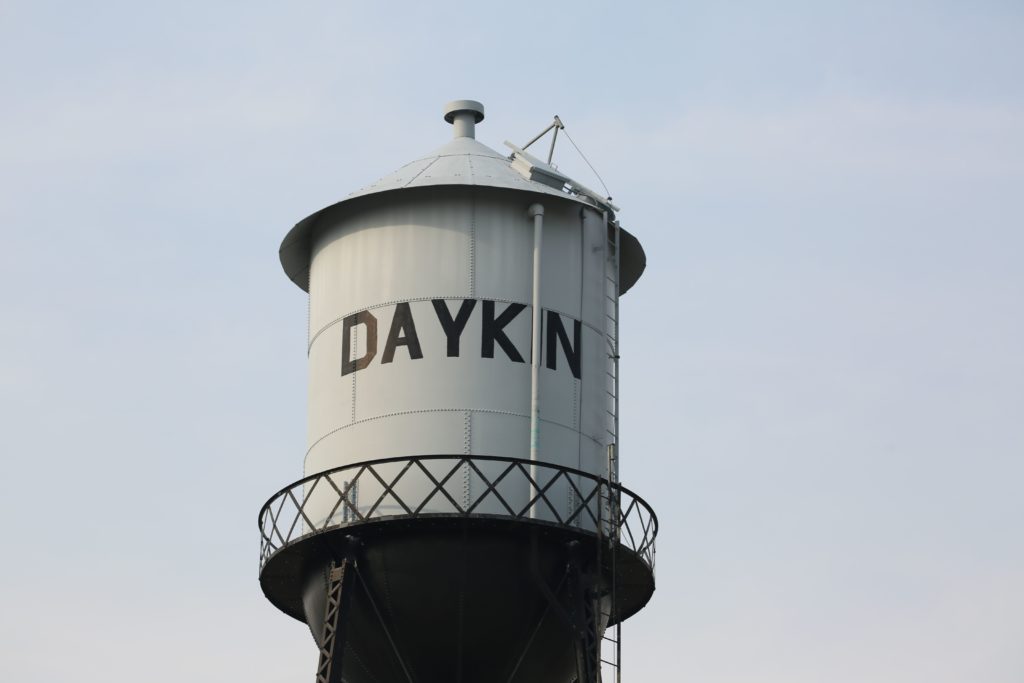
 Previous Post
Previous Post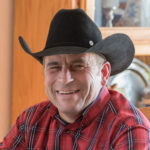 Next Post
Next Post